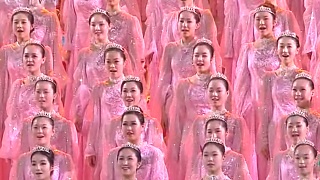
|
1. Harmony and Balance (和谐 Héxié)
Philosophical Roots: Derived from Confucianism, Daoism, and Buddhism, the concept of harmony emphasizes balance in social relationships, nature, and the universe. It promotes peaceful coexistence and cooperation.
Social Application: In social and business contexts, maintaining harmony is crucial. Conflicts are often resolved through negotiation and compromise to preserve social stability.
2. Family and Filial Piety (孝 Xiào)
Central Role of Family: The family is the cornerstone of Chinese society. Filial piety, respect for one’s parents and ancestors, is a key virtue.
Social Structure: Family obligations often take precedence over individual desires, reflecting the collective nature of Chinese culture.
3. Collectivism
Community Focus: Chinese culture emphasizes the importance of the group over the individual. This is evident in societal, family, and workplace dynamics.
Shared Responsibility: Successes and failures are often viewed as collective rather than individual, fostering a strong sense of community and mutual support.
4. Win-Win Philosophy (共赢 Gòngyíng)
Mutual Benefit: In business and diplomacy, the concept of win-win solutions is highly valued. It emphasizes creating outcomes that benefit all parties involved.
Long-Term Relationships: Building long-term relationships and mutual trust is prioritized over short-term gains.
5. Respect for Hierarchy and Authority
Confucian Influence: Respect for hierarchy is deeply ingrained, influenced by Confucian principles. This is evident in social, familial, and organizational structures.
Role of Elders and Leaders: Elders and leaders are accorded high respect and their opinions are given significant weight in decision-making processes.
6. Education and Continuous Learning
Value of Education: Education is highly valued and seen as a means to achieve personal and societal improvement. Historical reverence for scholars and intellectuals persists.
Meritocracy: Historically, the imperial examination system reinforced the importance of education and merit in attaining social status and governmental positions.
7. Adaptability and Pragmatism
Historical Adaptation: China has a long history of adapting to changing circumstances, whether through economic reforms or cultural assimilation.
Pragmatic Approach: Practical solutions are often favored over rigid adherence to ideology, allowing for flexibility in governance and daily life.
8. Respect for Tradition and Cultural Heritage
Preservation of Traditions: Despite modernization, traditional festivals, customs, and rituals remain integral to Chinese life.
Cultural Continuity: There's a strong emphasis on preserving and passing down cultural heritage through generations.
9. Guanxi (关系) - Social Connections and Networks
Importance of Relationships: Building and maintaining relationships is crucial in both personal and professional contexts. Guanxi can provide social support, opportunities, and resources.
Reciprocity: Relationships are maintained through reciprocal exchanges of favors and support.
10. Yin and Yang (阴阳 Yīnyáng)
Philosophical Concept: Represents the duality and interconnectedness of opposites in the natural world. Balance between yin (passive, dark, feminine) and yang (active, light, masculine) is sought.
Application in Life: This concept influences various aspects of life, including health, environment, and personal relationships.
Conclusion
These enduring characteristics shape the Chinese worldview and influence behavior, relationships, and societal norms. Understanding these cultural elements provides valuable insights into the dynamics of Chinese society and its approach to both personal and professional interactions. These values continue to guide life in China into modernity and its international relations.
|






 China 中国 in Motion, 2016
China 中国 in Motion, 2016













